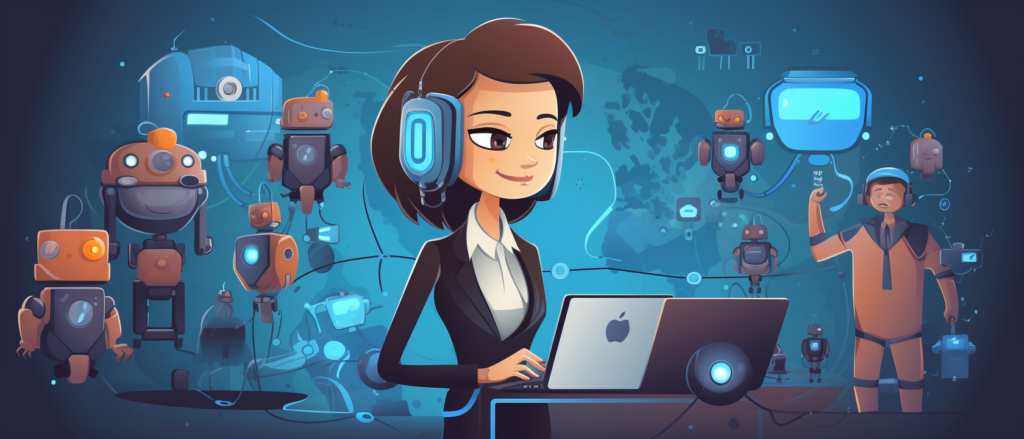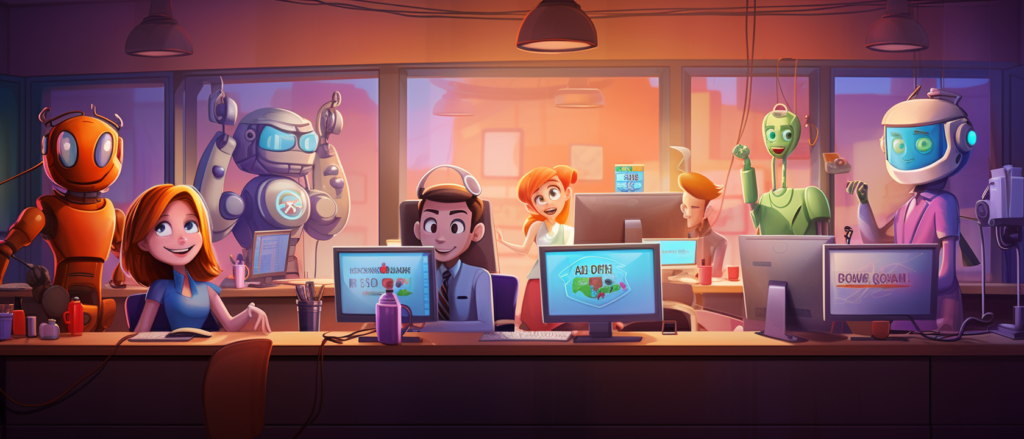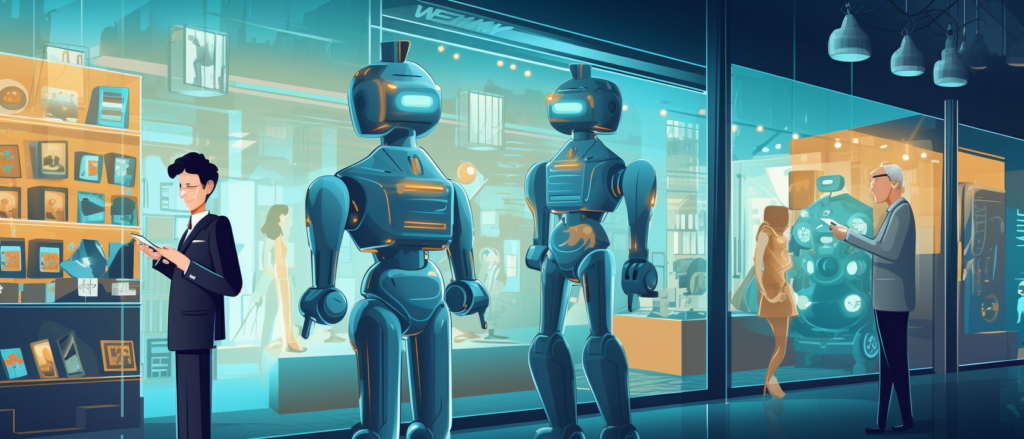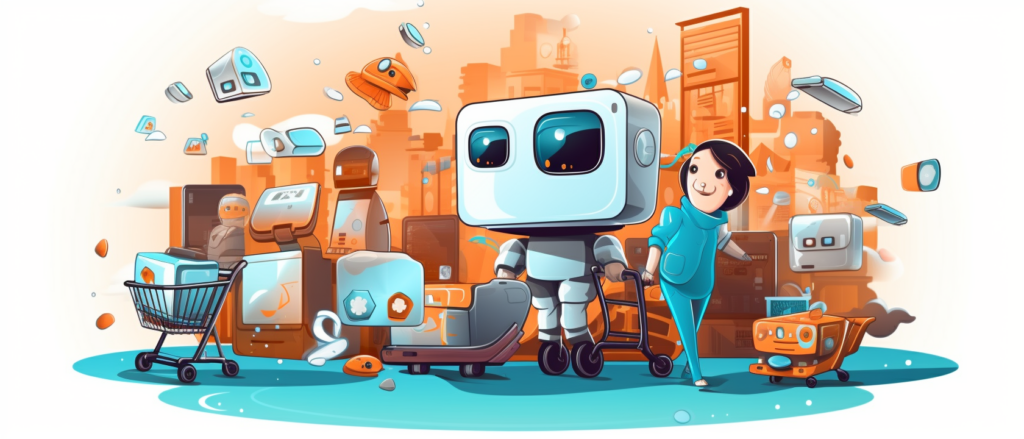Key Takeaways
✅ Enhanced Customer Experience: By using chatbots, businesses can offer personalized and efficient customer support. Chatbots utilize natural language processing and machine learning to engage in meaningful conversations, reducing wait times and operational costs.
✅ Cost-Effectiveness and Streamlined Operations: Chatbots help small businesses cut down labor costs by automating routine tasks. This allows human agents to focus on more complex issues, thereby improving service quality and employee satisfaction.
✅ Integration for Future Growth: Combining the efficiency of chatbots with human interaction offers a balanced approach. Early adoption of AI chatbots keeps small businesses competitive, adapting swiftly to technological advancements.
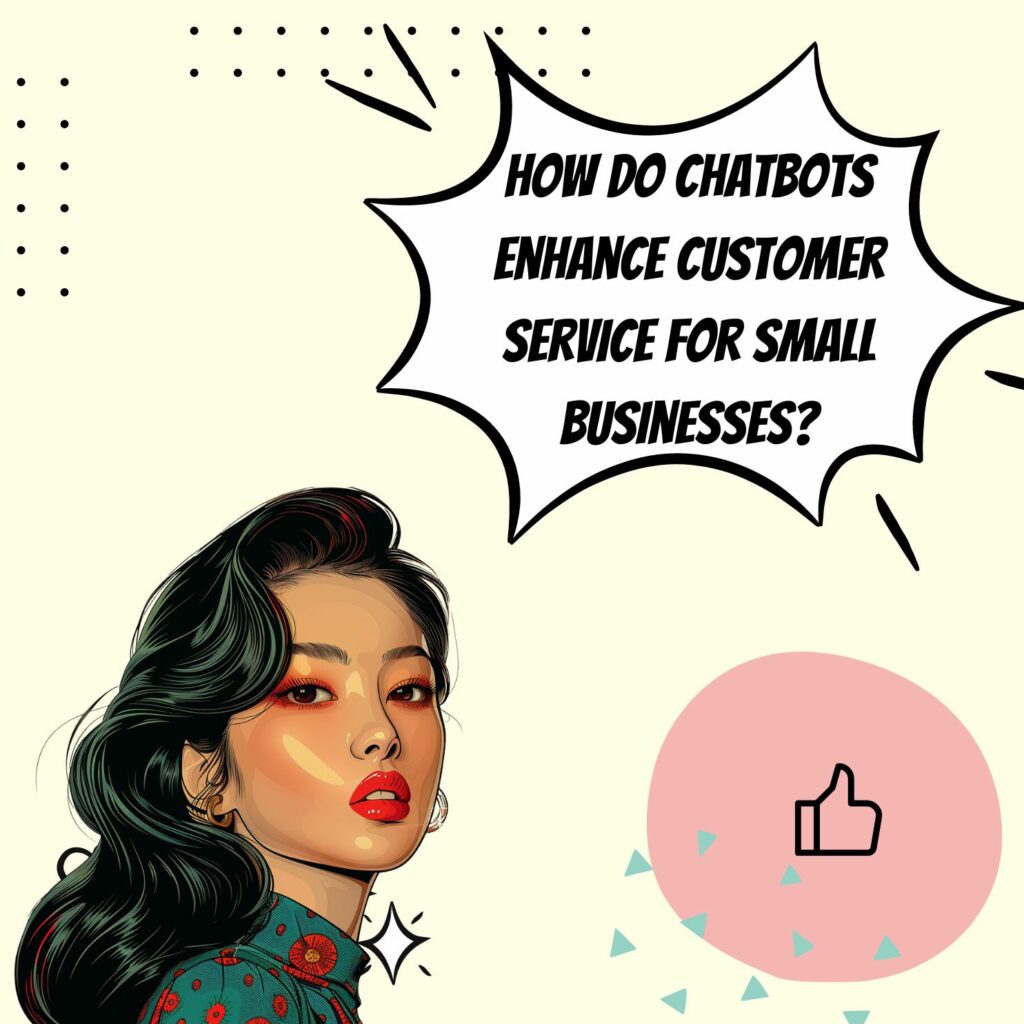
Introduction
Can small businesses afford to ignore the technological wave of chatbots that’s transforming customer service? Chatbots are no longer just a fancy tech term; they are practical tools that many small businesses use to improve their customer service. The rise of chatbots has made it easier for businesses to offer 24/7 support, handle multiple customer interactions simultaneously, and reduce operational costs. Despite common fears about losing the human touch, chatbots can actually enhance customer engagement by taking over repetitive tasks, allowing human agents to tackle more meaningful issues. If you wish to uncover actionable insights and groundbreaking information on how to make customer service more efficient, this guide is for you.
Top Statistics
| Top Statistics | Insight |
|---|---|
| The chatbot market size has grown from $6.7 billion in 2023 to $8.43 billion in 2024 at a compound annual growth rate (CAGR) of 25.9%. | This rapid growth indicates a booming market, suggesting small businesses should leverage chatbots to stay competitive. |
| By 2027, chatbots will become a quarter of businesses' primary customer service channels. | Widespread adoption shows how crucial chatbots are becoming in streamlining customer interactions. |
| 40% of millennials claim to engage with chatbots on a daily basis. | Millennials' engagement with chatbots highlights the demographic's comfort with technology and their expectation for instant support. |
| Businesses that use chatbots see a 67% increase in sales. | This impressive statistic underscores the direct impact on sales, making chatbot integration a smart business decision. |
| Chatbots are used by 22% of micro-businesses, 20% of small businesses, 11% of medium businesses, and 12% of big businesses. | A strong indicator that even the smallest enterprises recognize the value and effectiveness of chatbots in customer service. |
Understanding Chatbots
A chatbot is a computer program designed to simulate human-like conversations. These programs handle tasks without constant human intervention, making them versatile for customer service. From answering questions to processing orders, chatbots are widely used across industries. In retail, they help customers find products effortlessly. In banking, they provide quick account updates, enhancing customer experience.
Advantages of Chatbots for Small Businesses
Chatbots offer 24/7 availability, providing round-the-clock support. For small businesses targeting international audiences, this is crucial. They can qualify leads, directing them to the appropriate support agent, enhancing customer satisfaction. Chatbots also reduce support costs, a significant benefit for businesses with tight budgets. They handle repetitive queries, freeing human agents to tackle more complex issues.
Top Chatbot Platforms for Small Businesses
MobileMonkey features a user-friendly interface and automates customer interactions over multiple channels. Ultimate offers customizable chatbots that align with unique business needs. Gladly specializes in personalized customer service, integrating easily with CRM systems. IBM's watsonx Assistant uses powerful AI for accurate responses. Boost.ai is scalable and ideal for businesses expecting rapid growth.
Implementing Chatbots for Your Business
The first step is identifying whether a chatbot aligns with your business goals. Evaluate if customers frequently seek the same information and if your team is overwhelmed by repetitive inquiries. Choosing the right platform involves considering factors like pricing, features, and scalability. Setting up a chatbot requires training it to understand your business language. Continuous monitoring and updating ensure it remains effective.
Boosting Customer Satisfaction
Chatbots can handle simple inquiries, providing quick responses that enhance customer satisfaction. By offering immediate support, they improve the overall customer experience. This instant interaction can increase customer loyalty. For complex issues, chatbots can seamlessly transfer customers to human agents. This balance ensures efficient service while maintaining a personal touch.
Preparing for the Future
The chatbot industry is evolving, with advancements in AI and machine learning. Small businesses should stay updated on the latest trends and technologies. Investing in chatbot platforms that can adapt to future needs is crucial. Regularly updating the chatbot's knowledge base ensures it remains relevant. By embracing these technologies, businesses can stay competitive and meet growing customer expectations.
AI Marketing Engineers Recommendation
Recommendation 1: Leverage Chatbots to Handle Frequently Asked Questions: The Rise of Chatbots: Improving Customer Service for Small Businesses can be significantly enhanced by using chatbots to handle frequently asked questions (FAQs). According to a report by Juniper Research, chatbots can potentially save businesses over $8 billion annually by reducing customer service costs. By automating responses to common queries such as store hours, return policies, or basic troubleshooting, small businesses can free up human agents to tackle more complex issues. This streamlines customer interactions, providing quicker and more efficient service.
Recommendation 2: Personalize Customer Experience Using Chatbot Data: Incorporating The Rise of Chatbots: Improving Customer Service for Small Businesses should include a strategic focus on personalization. Current trends indicate that consumers expect personalized experiences; a survey by Epsilon found that 80% of respondents are more likely to make a purchase when brands offer personalized experiences. Chatbots can collect data from customer interactions to understand preferences and behaviors, allowing small businesses to tailor their marketing efforts effectively. For example, a chatbot can recommend products based on previous purchases or browsing history, enhancing the overall customer experience.
Recommendation 3: Implement Chatbots on Multiple Platforms: Using The Rise of Chatbots: Improving Customer Service for Small Businesses effectively means deploying chatbots across multiple platforms. With consumers engaging through various channels, from websites to social media to messaging apps, it’s crucial to have a consistent chatbot presence. Tools like Facebook Messenger bots or website-integrated chat options can ensure that customers receive timely support irrespective of the platform they use. A study by Intercom revealed that businesses using chatbots see a 67% increase in lead generation, illustrating the significant impact these tools can have on customer service and business growth.
Relevant Links
- Unlock the Power of AI-Driven Marketing Solutions
- Essential Strategies for Setting Campaign Goals and Marketing Objectives
- Expert Tips on Audience Growth and Market Penetration
- Leverage User Behavior Analysis to Enhance Customer Engagement
- Transform Your Marketing with Personalized Advertising and Custom Campaigns
Conclusion
In conclusion, chatbots are transforming the landscape of customer service, particularly for small businesses. By offering 24/7 availability and reducing the need for constant human interaction, chatbots help businesses provide immediate support and handle repetitive queries efficiently. This round-the-clock service is crucial for maintaining customer satisfaction, especially in today's fast-paced world.
Additionally, chatbots enable significant cost savings, a vital benefit for small businesses with tight budgets. By screening website visitors and qualifying leads, they ensure that human agents focus on more complex issues, optimizing resources and productivity. From platforms like MobileMonkey to Boost.ai, the tools available offer varied features that can be tailored to meet specific business needs.
The rise of chatbots signals an important shift in customer service. Small businesses that embrace this technology can not only boost their customer satisfaction but also stay competitive in an increasingly digital market. As we look forward, it’s clear that the integration of chatbots will continue to evolve, offering even more sophisticated and intuitive ways to engage with customers. So, is your business ready to harness the power of chatbots? The future of customer service awaits.
FAQs
Question 1: What are chatbots?
Answer: Chatbots are computer programs that simulate human conversations by responding to specific words or phrases with pre-programmed answers. They use machine learning, natural language processing, and artificial intelligence to improve over time.
Question 2: How do chatbots work?
Answer: Chatbots use machine learning and natural language processing to understand customer queries and respond accordingly. They can be integrated with existing systems and customized to meet specific business needs.
Question 3: What are the common types of chatbots?
Answer: The three most common types of chatbots are:
- Marketing: Provide product suggestions and upsell to customers.
- Sales: Generate leads and offer personalized recommendations.
- Customer Support: Answer common questions and provide quick support.
Question 4: How do chatbots enhance customer engagement and revenue?
Answer: Chatbots can engage customers in meaningful conversations, guide them through the sales funnel, and even close sales without constant human supervision. This automation saves time and reduces operational costs.
Question 5: What are the benefits of using AI chatbots for small businesses?
Answer: AI chatbots offer cost-effective solutions for providing round-the-clock customer service, managing sales inquiries, and handling marketing tasks. They also help small businesses allocate resources more effectively.
Question 6: How do chatbots improve customer satisfaction?
Answer: Chatbots provide instant responses to customer inquiries, reducing wait times and improving the overall quality of service. This leads to higher customer satisfaction and loyalty.
Question 7: How can small businesses implement chatbots effectively?
Answer: Small businesses should select chatbots that integrate seamlessly with their existing systems, are customizable to their needs, and can handle a range of tasks. They should also strike a balance between automation and human interaction.
Question 8: What are the key considerations for building a strong business case for AI chatbots?
Answer: The business case should focus on the cost-effectiveness of chatbots, their ability to provide 24/7 customer service, and their potential to improve operational efficiency and customer satisfaction.
Question 9: How can chatbots be used to reduce cart abandonment rates?
Answer: Strategically placed chatbots can address customer questions and doubts, encouraging them to complete their purchases and reducing cart abandonment rates.
Academic References
- Natural Networks. (2023). The Role of Chatbots in Customer Service for Small Businesses. This source discusses how chatbots can significantly enhance customer service and retention for small businesses by providing 24/7 support, automating routine tasks, and improving operational efficiency.
- Sendbird. (2024). AI Chatbots for Small Businesses (SMBs). This reference explores how AI chatbots can revolutionize customer engagement and revenue for small businesses by offering personalized interactions, handling sales inquiries, and reducing operational costs.
- AI Journ. (2024). The Small Business Secret Weapon for Unbeatable Customer Service. The article highlights the benefits of implementing chatbots for small businesses, including round-the-clock customer support, improved customer satisfaction, reduced wait times, and streamlined operations.
- Salesforce. Rise of the Chatbots: How AI Changed Customer Service. This source examines how AI-powered chatbots can handle multiple customer queries simultaneously, reduce wait times, improve service quality, while freeing up human agents to focus on more complex issues.
- Savvycom Software. (2024). Chatbot For Small Business: Benefits And Purposes On Use. This reference discusses how chatbots can help small businesses resolve FAQs, understand customer behavior, offer personalized support, and reduce cart abandonment rates, ultimately enhancing customer service and driving growth.


